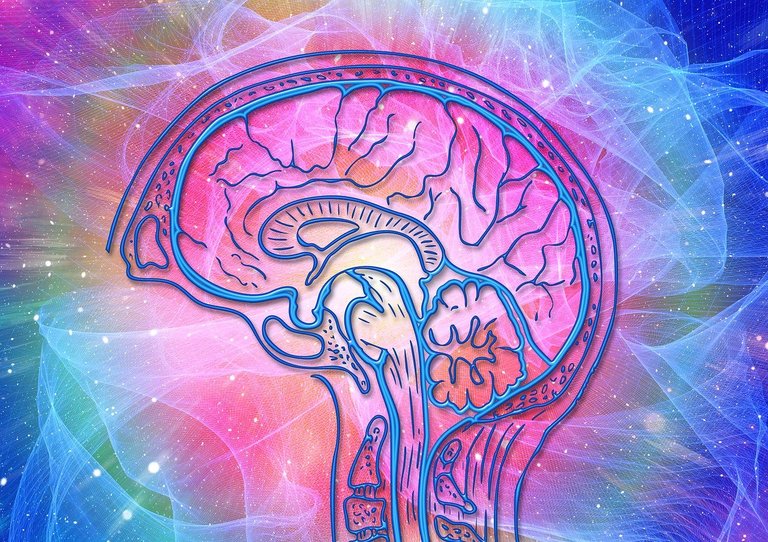Hi there, it's @skyehi and one very interesting thing we have come to realize is that with age, people’s memory and thinking abilities tend to change as part of their life. However, other times these changes can become more evident and worrying.
That is when Mild Cognitive Impairment (MCI) becomes a matter for concern. Now what actually is MCI, and how do we diagnose it?
What is Mild Cognitive Impairment?
Shortened as MCI, this is a condition where a person experiences slight memory or other mental function problems that are visible to both the affected individuals and others around them. It is not dementia although it’s more than what is regarded normal during old age.
Those with MCI may possibly fail to remember events more frequently than in the past, have difficulty finding appropriate words or making sound judgments. These alterations may impact upon their routine life but they can still handle themselves with an additional effort on them.

Kinds of Mild Cognitive Impairment:
There are two main forms of MCI:
- Amnestic MCI:
It occurs when individuals suffer from memory difficulties as compared to other cognitive abilities. Recall, in such a case, one might forget important meetings, ask the same questions repeatedly or find it hard to recollect what happened recently.
- Non-amnestic MCI:
This form involves thinking skills different from memory. In this regard, someone diagnosed with non-amnestic MCI may struggle with arranging duties, decision making and involvement in complex tasks.
How to diagnose Mild Cognitive Impairment
The diagnosis of MCI involves several steps aimed at understanding the symptoms of a person and ruling out other possible causes. This is how it is usually done by doctors:
- Medical History and Physical Exam
Medical history, symptoms experienced by the person and medicines they may be on will be enquired by the doctor. Additionally, physical examination will be performed to determine any underlying illnesses.
- Cognitive Tests
These are simple exercises or questions that asses memory, attention, language, and other mental abilities. These results help doctors understand how much cognitive impairment exists.
- Brain Imaging
MRI or CT scans that look for structural changes in the brain can sometimes be required by physicians. This can help exclude other things responsible for the symptoms.
- Blood Tests
Cognitive impairment may result from health problems like vitamin deficiencies or thyroid issues which could be identified through blood tests.
- Neuropsychological Testing
This testing goes deeper with cognitive assessments facilitated by a neuropsychologist. They can offer an elaborate perspective regarding one’s intellectual strengths and weaknesses.
Problems in Diagnosing MCI
MCI diagnosis may not always be straightforward. Among these issues are:
- Individual Differences
Cogitations abilities differ across different individuals hence the definition of “normal” also differs for people.
- Co-existing Conditions
A person diagnosed with MCI may also have other health problems like anxiety and depression which complicate its diagnosis.
- Progression
While some individuals with MCI will eventually develop into dementia, others may remain stable or even improve over time, whereas some will worsen.
Importance of Early Diagnosis
There are several reasons why detecting MCI early is important:
- Treatment Planning
Diagnostic techniques at this stage enable intervention aimed at symptom management as well as potentially slowing down cognitive decline.
- Lifestyle Change
Making healthier life choices such as regular exercising, balanced eating and keeping one’s mind active can aid in maintaining cognition over the years.
- Clinical Trials
Early detection provides a chance for patients to take part in clinical trials to test new therapies targeting MCI and Alzheimer’s.

MCI is a condition that weakens memory and other cognitive abilities to the point one can observe but it can be managed.
Diagnosis requires an extensive examination of symptoms, cognitive tests, medical history, and in some cases brain imaging.
Immediate detection is necessary for implementing actions on interventions or even lifestyle alterations meant to cope with symptoms and perhaps slow down cognitive decline.
When experiencing cognitive changes such as MCI, it is very crucial to consult a healthcare professional who can identify the reason behind it and recommend possible management strategies.
I hope this blog helps to create more awareness on this medical concern.
REFERENCES
https://www.mayoclinic.org/diseases-conditions/mild-cognitive-impairment/symptoms-causes/syc-20354578#:~:text=Mild%20cognitive%20impairment%20(MCI)%20is,mental%20function%20has%20%22slipped.%22
Have A Great Day And Catch You Next Time On StemSocial. Goodbye ⛑️
You Can Follow Me @skyehi For More Like This And Others
